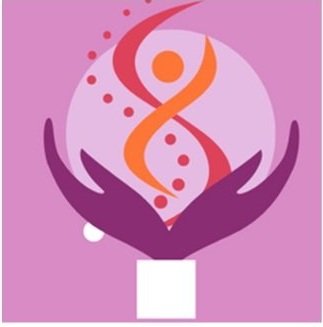Peer Support Drop-in Available to PEI Physicians
Peer support available for physicians - hosted by MH professionals (psychiatrists, physicians, etc.) to discuss any challenges physicians are facing MSPEI’s Physician Health Program, provided through Doctors of BC, is now hosting free drop-in COVID-19 Physician Peer Support Sessions via Zoom
Team Huddles
A structured, brief (5-15 min) routine (daily or multiple times a day), face-to-face communication of a team’s membership; has been shown to improve patient safety by enhancing teamwork creating standardized communication processes and providing a feeling of shared responsibility.
Team Strategies and Tools to Enhance Performance and Patient Safety (TeamSTEPPS)
A validated curriculum for teaching interprofessional communication; used with health workers; focuses on five key principles (leadership, situation monitoring, mutual support, communication, and team structure)
Death Cafes for Prevention of Burnout
Informal discussions focusing on death, dying, loss, grief, and illness. They allow for reflection on distressing events and offer community and collaboration among hospital employees outside of work. With Covid-19 limiting social interactions and overloading of ICUs worldwide, their virtual administration provides an innovative strategy to mitigate burnout
Well-being debriefings for health care workers: An Evidence-based method for improving well-being
A facilitator training manual to lead informal, peer-facilitated, small-group meetings where health workers have an opportunity to give voice to the difficult nature of their work and discuss issues that negatively affect resiliency
Commensality Groups
Commensality Groups are an evidence-based innovation to increase the sense of connection and collegiality among physicians and build comradery and meaning in work. By providing protected time for facilitated small-group discussion, improvements can be made across various dimensions of physician well-being, including meaning, empowerment, and engagement in work and reduction of distress.
Allyship in Residency
This article describes the development of a 1-hour workshop aimed at helping residents understand the definition of allyship, effective allyship to patients and colleagues, and allyship differences across communities.
VITALS tool for interupting microaggressions
This article describes the development of a 1-hour workshop designed to raise awareness of microaggressions encountered by medical students and trainees. It includes a focus on the use of the VITALS (validate, inquire, take time, assume, leave opportunities, speak up) framework when responding to microaggressions.
ERASE-ing Patient Mistreatment of Trainees: Faculty Workshop
This article describes the development, teaching and evaluation of a stepwise approach to help faculty physicians manage patient mistreatment of trainees (residents and students). The approach is summarized by the acronym ERASE.
REWIND Communication Tool
This article describes the development of a 1-hour workshop for residents with didactics on mistreatment in the medical learning environment. It includes a demonstration of the use of the REWIND (relax, express, why, inquire, negotiate, determine) communication tool to address mistreatment in residency.
COMPASS Program
COMPASS stands for “Colleagues Meeting to Promote and Sustain Satisfaction.” Initiated by Professor of Medicine Colin West, COMPASS groups are small gatherings of about six to 10 physicians who meet every other week for an hour to discuss issues central to the physician experience.
Forum Theater as a Teaching Tool to Combat Patient Bias
This article presents an educational activity that used an adaptation of forum theater, in which participants role-played an instance of oppression with a goal of altering the ultimate outcome. It provided them with the opportunity to develop and rehearse responses to workplace bias from patients and patient families in a way that preserved the provider-patient relationship.
Medical Orchestra
This narrative explores the founding of the Nebraska Medical Orchestra – an orchestra created as a nontraditional antidote to reduce stress and burnout among health care students and professionals – and also examines the concept of wellness through interactions between the orchestra’s director and health care-related musicians.
Battle Buddies
A psychological resilience intervention founded on a peer support model; involves pairing individuals together based on their clinical areas of practice, responsibilities, experience, seniority, and life circumstances
How to Implement a Peer Support Program During a Crisis
A webinar that covers the importance of peer support, the fundamentals for operationalizing a peer-support program in health systems and practices, and how peer support can potentially change organizational culture – especially during the COVID-19 pandemic
Health and Wellbeing Conversations
Regular health and wellbeing focused conversations held by line managers/ supervisors with their staff helps to foster a positive staff experience.
Faculty Support Calls
A program of voluntary and informal 1-hour group support video calls to help medical faculty address their challenges, listen to how they are coping, and describe lessons learned.
Mentorship Program for Medical Students
A support for resident-students/fourth-year medical students (during their 4-week emergency medicine sub internship).
Voices of Duke Health
A listening booth and podcast project that invites Duke Health providers, staff, students, trainees, patients, and visitors to have one-on-one conversations about what is meaningful in your lives, work, and relationships.
Women in Dentistry
Work, Life, Balance Group of female dentists gathered together to chat about an array of issues relevant to women in dental profession (clinical aspects, social and family life).





















